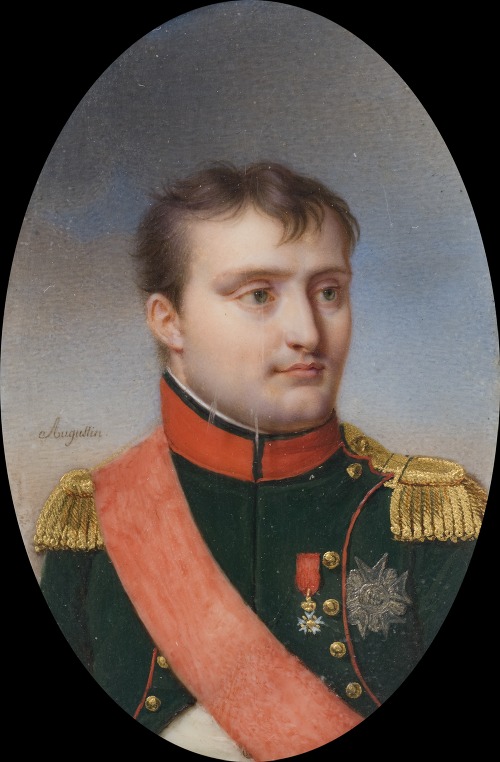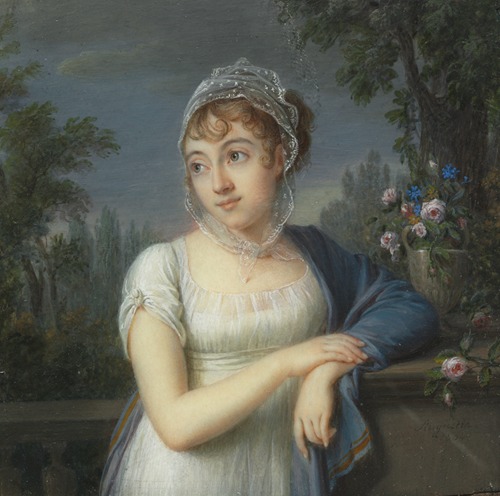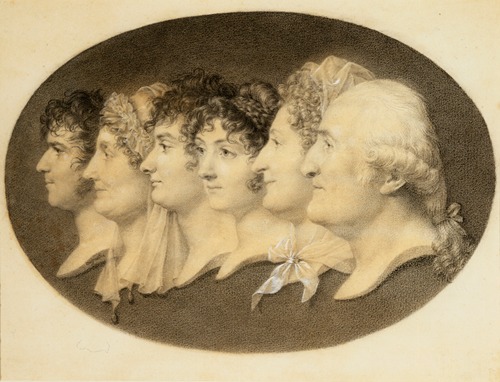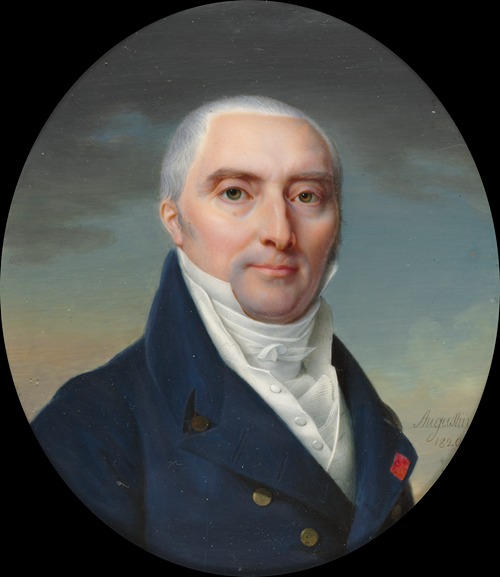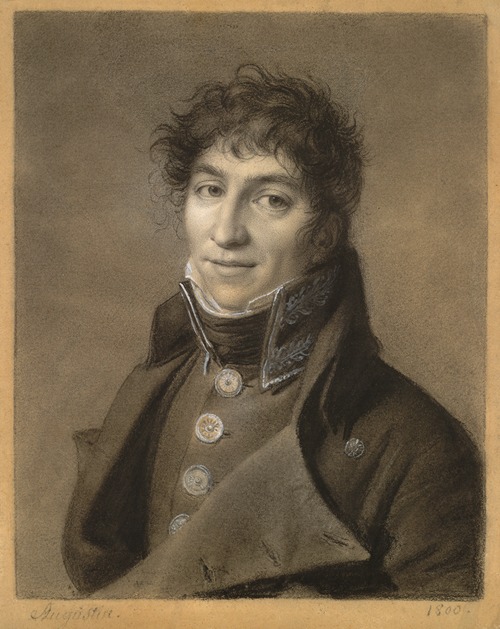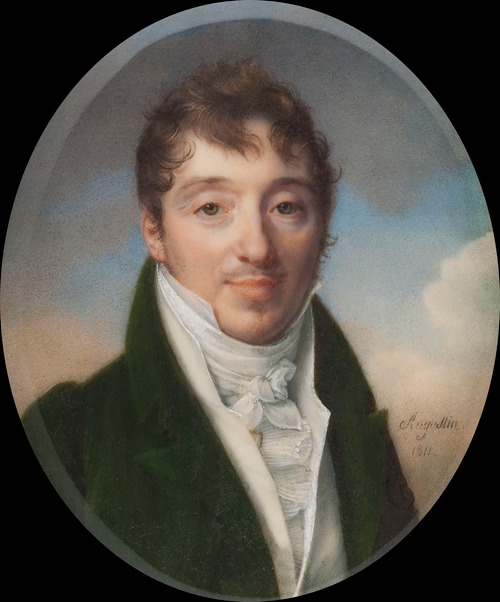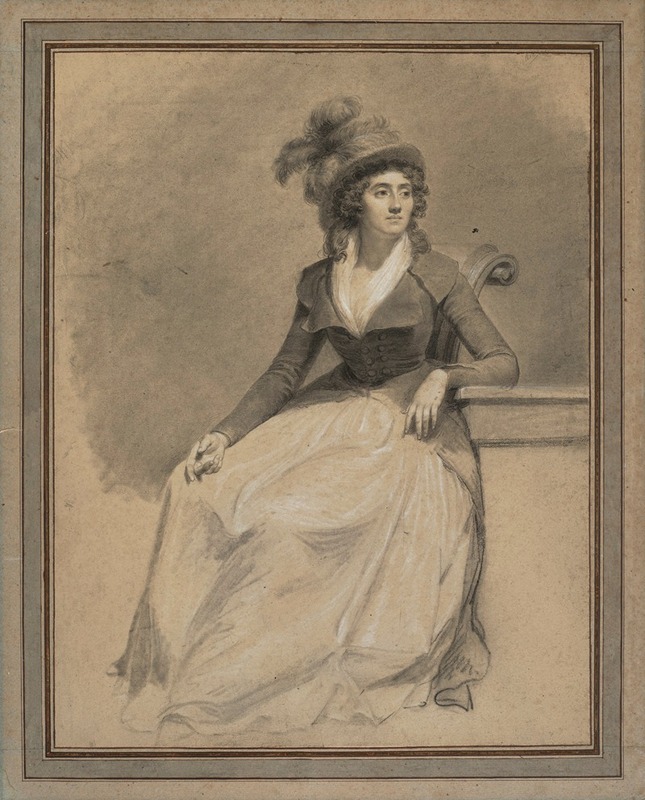
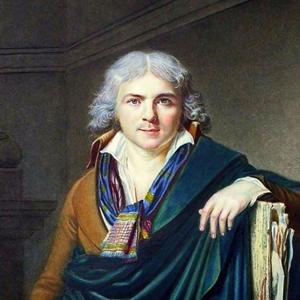
Jean-Baptiste Jacques Augustin was a French miniature painter.
Augustin was born in Saint-Dié-des-Vosges. His father was a master glazier. He displayed an aptitude for drawing from an early age, and his talent drew the attention of the steward of the local bishop. As a result, he was sent to Nancy for formal lessons. He probably studied with Jean-Baptiste Claudot, and possibly Jean Girardet as well.
In 1781, after a short stay in Dijon with his older brother Georges-Nicolas (1758-1800), a portrait miniaturist, he moved to Paris. At first, he worked in the studios of Pierre Gatien Philipon (1724-1787), but soon focused on miniatures and developed his own large clientele. He also became a popular teacher. His notable students included Lizinska de Mirbel, Alexandre de Latour and Fanny Charrin.
During the height of the French Revolution, he lived in his hometown. His first exhibition at the Paris Salon came in 1791, where he displayed portraits of the nobility, as well as revolutionaries. He would continue to exhibit there until 1831. He married his pupil Pauline du Cruet, who was 22 years his junior, in 1800. She produced numerous portraits in a style similar to his.
Later, he worked for Napoleon and his entourage. In 1806, he was awarded a gold medal and 250 Francs in recognition of his skills. His career survived the regime change and, in 1814, King Louis XVIII appointed him peintre ordinaire du Cabinet du roi (court painter). To this was added peintre des Affaires étrangères (painter of foreign affairs) and, in 1819, peintre en miniature de la Chambre et du Cabinet du roi (miniature painter of the royal court).
He was awarded the Legion of Honor in 1821. Not long after, he fell out of favor with the King and was replaced by his former student, Lizinska de Mirbel.
In his later years, he suffered from gout, and became increasingly incapacitated. His death came in 1832, from cholera, during the Second Pandemic. He was interred at the Père Lachaise Cemetery.
